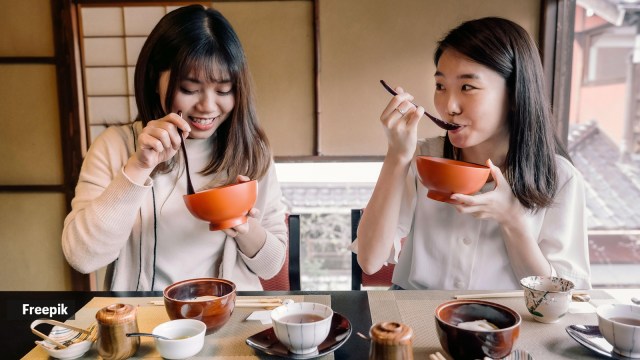📣 For more lifestyle news, click here to join our WhatsApp Channel and also follow us on Instagram
Here’s why the Japanese tend to outlive Indians on an average
Apart from diet, it is also essential to engage in regular physical activity, which has numerous benefits for the body.
 Find out why the Japanese live longer (Source: Freepik)
Find out why the Japanese live longer (Source: Freepik)Ever wondered why Japanese people tend to outlive Indians by a stretch? A 2024 study published in the European Journal of Clinical Nutrition found that Japan had the longest average life expectancy, primarily due to remarkably low mortality rates from ischemic heart disease and cancer (particularly breast and prostate). From a food and nutritional standpoint, the study explained that low mortality rates from ischemic heart disease and cancer reflect the low prevalence of obesity in Japan. Here are some of the key highlights from the paper:
- Low intake of red meat, specifically saturated fatty acids; and high intakes of fish, specifically n-3 polyunsaturated fatty acids, plant foods such as soybeans, and nonsugar-sweetened beverages such as green tea.
- The decreasing mortality rates from cerebrovascular disease are thought to reflect the increases in animal foods, milk, and dairy products and consequently in saturated fatty acids and calcium, together with a decrease in salt intake which may have led to a decrease in blood pressure.
- This decrease in salt and highly salted foods also seems to account for the decrease in stomach cancer.
While the typical Japanese diet is characterized by plant food and fish, compared to a Westernized diet that is rich in meat, milk and dairy products.
 Just like the Japanese, take your time to savour each bite (Source: Freepik)
Just like the Japanese, take your time to savour each bite (Source: Freepik)
Expert decodes why
Dr Rajiv Kovil, head of diabetology, Zandra Healthcare and co-founder, Rang De Neela initiative told indianexpress.com that Japanese diets choose products low in added sugars, saturated fats, and sodium. “Just like the Japanese, take your time to savour each bite, paying attention to the flavours and textures of your food. Eating slowly can help you recognise when you are full and prevent overeating and digestive issues,” said Dr Kovil.
Being mindful of portion sizes also helps avoid overeating. “Use measuring cups or a food scale to portion your meals accurately,” suggested Dr Kovil, adding that you should avoid cold, sugary drinks with meals as these may hamper the digestive process, and also lead to digestive issues, and unnecessary additional calories that go straight to your thighs and belly. Also, pay attention to food labels and choose wisely.
Apart from diet, it is also essential to engage in regular physical activity, which has numerous benefits for the body. “Exercise helps to improve insulin sensitivity, which means your body can utilise insulin more effectively. It also aids in weight management, reduces the risk of heart disease, and boosts overall well-being,” said Dr Kovil.
DISCLAIMER: This article is based on information from the public domain and/or the experts we spoke to. Always consult your health practitioner before starting any routine.
📣 For more lifestyle news, click here to join our WhatsApp Channel and also follow us on Instagram





- 01
- 02
- 03
- 04
- 05






















